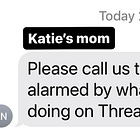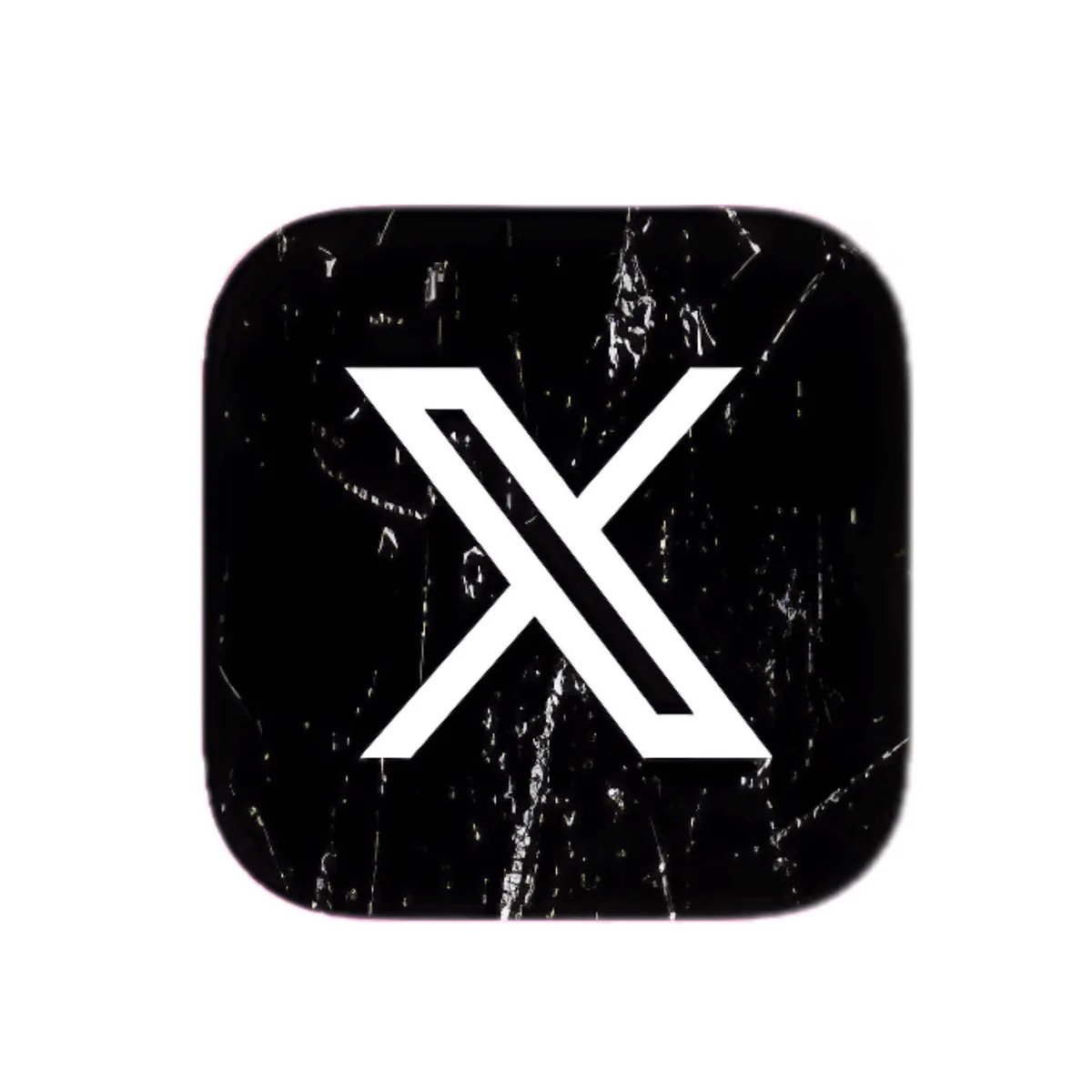Checking in on Twitter
How are last year's predictions about the Musk Era bearing out?
You can tell it’s August because the discourse has languished over the last 10 days or so on the (possibly engineered) viral success of a right-wing populist anthem called “Rich Men North of Richmond,” by a redheaded singer-songwriter who performs under the name Oliver Anthony. To me this song sounds like “Wagon Wheel” if the lyrics were written by an A.I. trained on thousands of boomer-conservative email forwards (I love “Wagon Wheel,” for the record), and I suspect that in different circumstances it would have been supplanted as The Thing People Are Talking About Online more quickly, but August is a fallow period, and a small discursive object can create a relatively strong gravitational pull if its only competition is, say, “the size of Bradley Cooper’s prosthetic nose in his new movie.”1
The problem for me is that, try as I might to formulate some kind of strong opinion or counterintuitive take, I personally have very little to say about “Rich Men North of Richmond,” other than that I expect it to be funny when Oliver Anthony performs it at the RNC next July. So instead I thought we could take this slow week to check in with how the Musk Era of Twitter is going in light of some of the predictions and observations of last year. Luckily for the timeliness of this email, as I was prepping it for publication Musk announced that he was going to eliminate the Twitter “block” function, so it’s even kind of relevant!
At the risk of rehearsing events still fresh in everyone’s mind, in the immediate aftermath of Elon Musk’s acquisition on Twitter, there were at least three broad and interrelated questions whose answers seemed still up in the air: One, would Twitter the website break irretrievably because Musk had fired all the people who knew how it worked; two, would Twitter the business cease to exist because Musk could not service the debt he’d taken on to buy it; and three, would everyone leave Twitter because Musk let all of the grasping little Nazi freaks back on so that he could reply to their tweets with the word “indubitably.”
At the time, amid the ongoing disaster of Musk’s takeover, it seemed like we might have immediate answers to some or all of these questions. But nine months later it seems like all three questions still remain unanswered, and will perhaps remain unanswered for a while. As I wrote at the time, and generally stand by as a heuristic, “overnight collapse is memorable but rare, and most things (companies, careers, countries, invasions, political parties, supranational economic unions) slowly decay, intermittently stabilizing along a long downward trajectory, rather than implode overnight.”
Still, it’s worth examining the state of play and seeing where we are on the expected long downward trajectory.
The “block” function
Earlier today Musk tweeted that the company will “delete” the block feature. Seems like a stupid idea but also one that probably won’t ever actually happen. Beyond that, if I’m being totally honest about it, I have no real thoughts about the issue and am only including it as a large header to make this newsletter seem slightly more timely.
The business of Twitter
In a piece last November I tried to separate out what I thought of as two distinct aspects of Twitter that were being threatened in different ways: Its bottom-line business and its culture as a social network. At the time, advertisers were (loudly, dramatically) fleeing Twitter, and it seemed almost possible that Musk’s weird persona and terrible opinions might actually destroy the business. But--unsurprisingly--the minute media focus turned away from Elon’s antics (and the minute he hired a C.E.O. to handle advertiser clients), a number of brands returned, among them Visa, Coca-Cola, and Mondelez. This despite the fact that Musk’s behavior is grosser and more erratic now than it was last year, and the platform is generally shittier and worse! So, I don’t know, seems like the company is chugging along more or less fine for now.
The culture of Twitter
The culture of Twitter, however, has changed. More than anything it seems as though the makeup of prominent posters has changed, with a strong shift toward people who work in or comment on the tech industry. I don’t think this is necessarily the result of a conspiracy on Musk’s part so much as a natural outcome of weighting promotion toward people who pay for Twitter, a group that skews “tech,” but it certainly changes the way stories and memes are taken up and discussed. Worse, the increased prominence of the tech industry means increased prominence for the communities and cultures adjacent to the tech industry, i.e. Race-Science Reactionaries and Hustle Business Mindset Guys. (On the flip side, the decreased prominence of media workers means decreased prominence for their adjacent groups, Annoying Academics and Well-Meaning But Gullible Mainstream Democrats.)
The competitors
Two new Twitter clones have arisen in the months since Musk took over;2 it’s early days for this kind of thing, but I don’t think either one is a particularly promising competitor, and certainly don’t seem to pose any kind of real threat to Twitter’s continued existence.
Threads, the new Instagram-integrated posting app from Meta, Inc. is more or less exactly what you’d expect from a Twitter created by Facebook: opaque, un-fun, and brand-dominated. In some ways it feels like a social network that’s already been around for 15 years and has already been fully professionalized at the expense of any kind of life. To some extent this kind of culture problem could be fixed with an influx of new users, but its current mix of meme accounts, high-volume news blogs, celebrities, and hustle influencers seems to be more or less what Meta wants it to be, so I’m suspicious it will ever get good. (For more on Threads, listen to my podcast with Katie Notopoulos.)
Bluesky, which began as a unit of Twitter developing decentralized social protocols before being spun off in 2021, feels a bit closer to early Twitter in the high concentration of earnest/well-meaning cornballs among its user base and in the fact that it seems to break all the time. What it lacks, and what might be hard to develop, is a large contingent of normal people who signed up to follow celebrities/politicians and stuck around to be a permanent disapproving audience and pool of intermittent guest stars. Large group of non-professional posters play a key role in the dynamics of any good social network, and without them you might as well just be in a Discord. (My big suggestion to any wannabe Twitter competitors hoping to cultivate an audience beyond hopeless posting addicts is to develop a strong identity around sports, discussion of which is still the best and maybe the only remaining reason to open the Twitter app.)
The name and logo
The idea that Elon Musk is one of the wackest and most tasteless3 men alive has become such broad common wisdom that I want to argue against it just for the sake of being interesting. Unfortunately for my desire to be contrarian he continually outdoes himself along these lines, demonstrating new levels of undeniable tastelessness, expressing preferences almost perfectly calibrated to hit the utmost possible level of wack without accidentally tipping over into somehow kind of cool. Case in point here is his decision to rename Twitter “X,” and, even more than that, to produce a stupid logo and then revise it for the app icon in a sort of “The Black Rifle Coffee of Social Media” style to fully maximize the juicelessness:
Musk has apparently spent years trying to name a company “X” for reasons I cannot possibly begin to fathom--he was forced out of PayPal in part for trying to rename it “X”--and it’s the kind of wildly pointless and counterproductive obsession whose implementation at most companies with widely known brands would become a business-school case study. But to Musk’s credit he seems to finally have found a company whose users are so hopelessly addicted to the service that he can give it the bad sci-fi novel megacorp name he’s always wanted to use without it appreciably affecting the company’s prospects. In some sense it’s a touching story of someone finally able to realize his dream.
You can also tell it’s August because I’m too lazy to cleverly extend the gravitational-pull metaphor here for a big-nose joke.
There’s also Mastodon, which, for reasons I’ve written about in the past, I don’t have particular hope for:
But, anyway, no, I don’t think that Mastodon or the fediverse really have a chance at being a thing. And I’m not sure it’s moderation that’s the problem precisely. I think Twitter being centralized is one of its great remaining strengths: not simply that there is a critical mass of people there, but, for some industries and interests, all the people are there, including those you hate and disagree with.
Bluesky is supposedly “decentralized” in a similar way, but so far the app downplays this aspect, which I think is smart.
To be clear, I don’t mean “tasteless” in the sense of “offensive,” I mean “tasteless” in the literal sense of “has no taste.”








Elon's choice of the new X icon is perfectly evocative of his shitty edgelord persona circa 2006
"Rich Men ..." blew up discussion on economist Noah Smith's Noahpinion Substack ( noahpinion.blog ). I'm in the camp to give the song a hard pass. It's the worst message delivered by the worst messenger.
The Twitter thread got it right; the song is an op.
I hate the song for the same reasons Todd in the Shadows hated Aaron Lewis's "Am I the Only One" and David Cross hates Larry the Cable guy. In order to hate the politics of a text, you must first hate the creator. And Messrs. Shadows and Cross show the art of the diss.
Todd in the Shadows reviews "Am I the Only One": https://www.youtube.com/watch?v=Oxj-H72wmeM
David Cross' open letter to Larry the Cable Guy (1 of 2): https://www.youtube.com/watch?v=DDimQTJMjB0 (2 of 2): https://www.youtube.com/watch?v=CHWF0IBZ6xM
They show the glaring defects in the art of their targets, without directly taking on the politics.